The average electric bill in Tennessee is $149.33. The current rate by EIA is calculated by undertaking the average residential electricity rate in Tennessee of 12.57 cents per kilowatt-hour (kWh) and considering that the monthly consumption is around 1188 kWh. That said, the average living cost for a single person in Nashville, Tennessee, is roughly $1300, which is 10% lower than the national cost of living.
As of June 2024, Tennessee's average residential electricity rate is 12.57 ¢/kWh, reflecting an increase from the 12.42 ¢/kWh rate in June 2023. If your household income is also affected by the sudden rise in electricity bills and you are looking to reduce it, you can check out Jackery Solar Generators. These powerful generators are ideal for charging and powering your household and outdoor appliances like air conditioners, electric grills, microwave ovens, and more.
Key Takeaways
In the comprehensive guide to understanding the electricity rates in Tennessee, we are going to discuss several key factors, including:
- A detailed comparison between the average electric bill in Tennesseewith the US data.
- A thorough analysis of different electricity providers in Tennessee and their respective electric rates.
- The overall cost of living in Tennessee in 2024, along with the most common utilities and their monthly charges.
- Understanding the on-peak and off-peak charges and how they affect the average electric bill in Tennessee.
- Analyzing how Jackery Solar Generators can help you lower your electric bill.
What Is The Average Electric Bill in Tennessee?
The average electric bill in Tennessee provides a clear picture of the state's energy consumption and costs. As of June 2024, Tennessee residents pay an average residential electricity rate of 12.57 ¢/kWh. With an average monthly consumption of 1,188 kWh, the monthly average electric bill comes to around $149.33. That said, if your monthly consumption exceeds this average, you will also find an increase in your monthly bill.
The US national average residential electricity rate is 16.41 ¢/kWh. With an average monthly consumption of 899 kWh, the national average monthly bill is about $147.52. Tennessee's average electric rate is higher than the national average, which is why residents here have always seen a rise in their electricity bills.
Considering the rise in electricity consumption and rates, the federal government announced in April 2024 that it aims to invest $7 billion in solar energy projects for over 900,000 households in low-income and disadvantaged communities.

Tennessee's average electric bill of $149.33 is relatively moderate compared to other states. For example, Oklahoma's bill is higher at $142.87, and Virginia's is even higher at $166.26. Minnesota's bills range from $90 to $150, depending on the state's consumption and seasonal changes. New York's average bill is lower at $145.09, while Maryland's is higher at $168.52.
Here's a detailed table illustrating the different rates of major states in the US.
|
State |
Average Bill |
Average Rate |
Monthly Usage |
|
Tennessee |
$149.33 per month |
12.57 ¢/kWh |
1,188 kWh |
|
Oklahoma |
$142.87 per month |
12.37 ¢/kWh |
1,155 kWh |
|
Virginia |
$166.26 per month |
15.31 ¢/kWh |
1,086 kWh |
|
Minnesota |
$126.61 per month |
16.38 ¢/kWh |
773 kWh |
|
New York |
$145.09 per month |
24.51 ¢/kWh |
592 kWh |
|
Maryland |
$168.52 per month |
17.41 ¢/kWh |
968 kWh |
What Are The Electric Rates in Tennessee?
Electric rates refer to the cost per unit of electricity that consumers have to pay based on their usage. These charges vary depending on the type of consumer -- residential, commercial, or industrial.
In Tennessee, electricity rates are defined by the different service providers. However, commercial rates are slightly lower at 12.15 ¢/kWh, offering competitive pricing when compared against the national average of 13.10 ¢/kWh. Similarly, industrial users benefit from an even more favorable rate of 6.23 cents ¢/kWh, which is significantly lower than the national average of 8.84 ¢/kWh.
Here are different electricity providers in Tennessee:
Tennessee Valley Authority (TVA)
TVA is the nation's largest public power corporation, providing electricity to over 10 million people. This government-owned agency owns most of the state's electric generating capacity and provides electricity to 153 local power companies.
Rate: TVA's wholesale electricity rate is close to 7 ¢/kWh, which has remained consistent for a decade now.
Memphis Light, Gas and Water (MLGW)
MLGW serves the Memphis area, provides electricity to 440,000 customers, and offers gas and water-related services. The company also has 43,000+ customers who use electricity for their commercial work.
Rates: Customers pay a base service charge of $15.27 monthly or less. For every 500 kWh of electricity consumption during the summer, the charges are 8.84 ¢/kWh and 8.74 ¢/kWh for additional usage. Similarly, during winter, the rate is 8.47 ¢/kWh for the first 500 kWh and 8.37 ¢/kWh for additional consumption.
Nashville Electric Service (NES)
NES is another largest public electric utility provider in the US, serving more than 370,000 customers in Middle Tennessee. The company provides a detailed 'Neighborhood Comparison Access' where one can compare their home size and analyze their monthly usage and respective bills.
Rates: The current energy rate is 10.216 ¢/kWh, with a base charge of $14.06 per month if the customer's highest monthly consumption is not more than 500 kWh. However, the base charge increases to $18.96 if the consumption ranges from 500 - 2000 kWh. If the consumption ranges from 2001 kWh - 4000 kWh, the base service charges will be $26.96 per month.
Knoxville Utilities Board (KUB)
KUB provides high-speed internet, electric, gas, water, and wastewater services to the Knoxville area in Tennessee. Currently, KUB has more than 400,000 customers in Knoxville and different parts of the neighboring counties.
Rate: The base service charge for KUB customers is $20.50, and the electricity rate for a single-family dwelling is 10.62 ¢/kWh.
|
Supplier |
Electric Rate |
|
Tennessee Valley Authority (TVA) |
7 ¢/kWh |
|
Memphis Light, Gas and Water (MLGW) |
8.84 ¢/kWh |
|
Nashville Electric Service (NES) |
10.216 ¢/kWh |
|
Knoxville Utilities Board (KUB) |
10.62 ¢/kWh |
As you can see, Tennessee's electricity providers offer varied rates based on their demographic and infrastructure. On one hand, TVA provides a stable wholesale rate of about 7 ¢/kWh, which serves more than 10 million people. MLGW charges 8.84 ¢/kWh for the first 500 kWh in summer with a $15.27 base fee. At the same time, NES rates are 10.216 ¢/kWh with base fees from $14.06 to $26.96 based on monthly usage. KUB's rate is 10.62 ¢/kWh with a $20.50 base charge.
Given the fact that there are so many service providers, it might become confusing for a few as to which one they should choose. Determining the best electric rate or supplier requires careful consideration of several factors, but all begins with a careful understanding and analysis of your usage patterns. Here are a few practical factors to help you make an informed decision:
Understand Your Usage
Always begin by analyzing your electricity consumption. You can check and review your past bills to understand your monthly usage in kilowatt-hours. If your monthly power consumption is lower, you can choose the one that offers moderate rates. However, if your consumption exceeds, let's say, 1000 kWh per month, then go ahead with the one that has more competitive rates.
Compare Rates
You can also always compare rates from the electricity providers. Go to their official websites and look for the updated rates they offer their residential and commercial customers. You can check out TVA's updated wholesale rate or go ahead with MLGW if you are looking for tiered rates based on the season.
Check Contract Terms
Always pay close attention to the contract terms and conditions. Some electricity providers have hidden cancellation charges or rate changes over time. Contact their customer support team and understand the terms in detail.
How Much Does It Cost to Live in Tennessee?
The average cost of living in Tennessee is $1300 per month, which does not include housing rent. The cost of living in Tennessee will increase depending on your locality. For instance, a 1-bedroom apartment near the city center might cost around $2000 per month, and the same square foot area outside the city center will cost around $1500 per month.
That said, Tennessee is known for its relatively low cost of living compared to other states because the state offers affordable housing and lower utility costs. At the same time, with no state income tax, the state becomes an attractive option for both families and individuals. Overall, the cost of living in Tennessee is 10% lower than the national average of $2,500 and $3,500 per month.
Some of the common utilities here in Tennessee are:
Electricity: With an average electricity rate of 12.57 ¢/kWh and monthly consumption of 1188 kWh, the average electric bill in Tennessee is $149.33, which comes to $1,791.96 yearly.
Domestic Gas: The average domestic gas that is used by any domestic consumer for cooking, water heating, clothes drying, and refrigeration would come at $8 per month and $0.745 per therm (1 therm is equivalent to 100 cubic feet). On average, the gas charges come to around $101 per month.
Water Charges: Water rates in Tennessee depend on different providers. On average, residential charges inside the city start at $0.69 ¢/gallon of water. For most households, the charges come to around $36 per month.
Cable TV and Internet: Tennessee has different cable and internet providers, each offering its individual rates. For instance, T-Mobile Home Internet provides 245 Mbps at $50 monthly. Similarly, Earthlink offers 5000 Mbps at $49.95 per month. Other than this, there are several cable TV providers, each offering different features. On average, the cost of cable TV and Internet comes to around $121 per month.
Additionally, the cost of living in Tennessee also depends on multiple other factors. For instance:
Housing Cost
Compared to the nationwide average, housing costs in Tennessee are a little more affordable. The median home value is around $231,600, which is about 20% lower than the national average. Similarly, a 1-bedroom apartment in the city center would cost around $2000, but renting a place outside the city center will cost you around $1500.
Groceries & Food
Tennessee is famous for its agricultural production, which is why the average cost of groceries here is about 5 - 7% lower than the national average. On a monthly basis, individuals can expect to spend around $251 on groceries. This does not include the cost of dining out in expensive restaurants.
Transportation Cost
The average annual cost of transportation in this state ranges from $5,477 for a single adult to $15,530 for a family with three children. However, transportation varies according to gas prices, travel frequency, and usage of public transport.

The above data and cost are the state average, as the cost varies significantly across different cities. For example, the cost to live in Nashville will be comparatively higher than in cities like Memphis and Chattanooga, which offer affordable living options and lower utility costs. Similarly, Knoxville also falls on the more affordable side and offers a balanced cost of living.
Compared to other states, Tennessee's overall cost of living is about 10% lower than the national average, making it one of the more affordable states in the US. Having said that, there is always room to cut costs and expenditures without losing comfort.
Why Is My Electric Bill So High in Tennessee?
Several factors contribute to high electric bills in Tennessee. For instance, the choice of electricity providers, city, and number of appliances play a major role in determining the average electric bill in this state. Some of the notable factors are:
Climate Condition
Compared to other large states, Tennessee generally has a humid subtropical climate. In Tennessee, the temperature in summer goes around an average of 90°F or 32°C. Compared to summer, winters tend to be mild to cool. The change in such weather conditions directly influences the electric bills.
Usage Consumption
The average electricity consumption in Tennessee is around 1188 kWh, which is 24.32% higher than the nationwide average of 899 kWh. If your household suddenly starts using excessive appliances, the rise in consumption will directly affect the average electric bill in Tennessee.
Usage Timing
On-peak and off-peak usage hours significantly influence electricity costs. Peak hours are when the electricity demand is highest, and off-peak hours are when the demand is lowest.
In Tennessee, the on-peak hours typically occur during the hottest parts of the day in summer and early evening in winter, leading to higher rates. In contrast, the off-peak hours usually occur late at night and early in the morning, offering comparatively lower rates.
If you wish to use all of your electric appliances without worrying about the on-peak or off-peaks while managing your monthly average cost of living, you can check out Jackery Solar Generators that can charge 99% of your household appliances, leading to a lower dependency on grid power. This way, you can have an eco-friendly source of power and will have a lower average electric bill in Tennessee.
Jackery Solar Generators for Lowering Your Electric Bills
Jackery is a globally renowned brand that actively leads in patented technologies for solar generators, solar panels, and portable power stations. With over 4 million units sold, Jackery has created several lines of generators and power stations that help you reduce your monthly average electric bills.
Jackery Solar Generators come with Jackery SolarSaga Solar Panels that harness solar energy with the help of its monocrystalline silicon cells. These panels are designed in a honeycomb-like structure that offers maximum capturing capacity. The harnessed energy from the Jackery Explorer Portable Power Station was later converted using a pure sine wave inverter that helps in charging appliances like air conditioners, televisions, portable refrigerators, CPAP, etc.
Jackery Solar Generators are designed so that one can carry them around in their house or take them to remote locations to charge outdoor appliances. This way, you can reduce your average electric bill in Tennessee and have fully charged equipment when traveling outdoors.
Jackery has a wide range of solar generators designed for specific needs. If you are looking for ways to reduce your average electric bill in Tennessee, you can check out either of the following solar generators:
Jackery Solar Generator 3000 Pro
For those who live in places that face regular power cuts and are looking to shift to solar power to reduce their electricity bill, Jackery Solar Generator 3000 Pro is highly recommended. With a high-capacity battery, multiple charging ports, and fast charging, this generator is ideal for charging 99% of household appliances.
Appliance Working Hours
- Circular Saw (2400W): 1.0H
- Camping Grill (2000W): 1.2H
- Compact Oven (1500W): 1.7H
- Small Dishwasher (1200W): 2.1H
- Coffee Machine (1000W): 2.5H

Customer Review
"I am highly impressed with this Jackery 3000 pro… It does have wheels and a handle that makes it easier to handle the weight." -- Ya.
Jackery Solar Generator 2000 Plus
Jackery Solar Generator 2000 Plus is ideal for those looking for a high-battery capacity generator that emits no fumes and operates whisper-quietly. Its sturdy and compact design allows you to carry it with you during road trips, RV living, or other outdoor adventures.
Appliance Working Hours
- Vacuum Cleaner (1500W): 1.1H
- Electric Lawn Edger (1200W): 1.4H
- Small Air Conditioner (1000W): 1.7H
- Egg Cooker (500W): 3.4H
- Laptop (120W): 14.4H

Customer Review
"Purchased for home backup, but I also take these out with me on long camping trips. It will easily power whatever you plug in it, and the 30 amp RV plug is a nice addition." -- Chris.
Jackery Solar Generator 2000 Plus Kit (4kWh)
For those who have large appliances at their home or regularly visit outdoor locations and charge heavy-duty appliances like central air conditioners, large freezers, electric grills, and such, then they should check out the expanded kit. This Jackery Solar Generator 2000 Plus Kit (4kWh) is a powerful unit that can help you charge multiple heavy-duty appliances in one go.
Appliance Working Hours
- Vacuum Cleaner (1500W): 2.2H
- Electric Lawn Edger (1200W): 2.8H
- Small Air Conditioner (1000W): 3.4H
- Egg Cooker (500W): 6.8H
- Laptop (120W): 28.8H

Customer Review
"A solid product that is intended for home use. For the camping crowd, weekend warriors, or folks who do not cycle through the battery daily, I highly recommend the Jackery PRO line." -- Christian V.
How to Lower My Electric Bill in Tennessee?
If you are also looking to lower your average electric bill in Tennessee, you can check out a few handy tips:
Use Energy-Efficient Appliances
Always replace your old appliances with Energy Star-rated models that can help reduce energy consumption. It is reported that energy-efficient appliances can help you reduce 20% of your average electric bill.
Upgrade Lighting
If your household still uses incandescent or CFL bulbs, then try shifting to LED bulbs. The latest LED bulbs can even help you reduce energy usage by up to 75%, significantly reducing your monthly electricity bill.
Opt for Off-Peak
If possible, in your household, shift energy-intensive activities, like dishwashing and laundry, to off-peak hours when the electricity is comparatively lower than the on-peak hours.
Go Solar
You can even invest in solar energy to substantially save on electricity bills. With the help of ground-mounted solar panels or roof-mounted solar panels, you can reduce your reliance on the grid.
There are several benefits of going ahead with solar energy, like:
- By generating your own electricity, you can significantly lower your monthly utility bills.
- If you go ahead and install solar panels on your house's roof, the state will count 12.5% of your project costs as taxable property value.
- Solar power is a clean and renewable energy source, which reduces carbon footprint and is environmentally friendly.
That said, the average cost of installing full-fledged solar panels is roughly $15000 to $23000. If you do not wish to spend this large sum of money and still wish to use solar energy, you can always check Jackery Solar Generators. These portable solar generators are economical compared to the roof-mounted solar panel system but are reliable and highly recommended for RV living, camping, and other outdoor activities.
Tennessee Average Electric Bill FAQs
What size of solar generator do I need for my house in Tennessee?
The size of the solar generator that you will need for your home in Tennessee depends on multiple factors, including the number of hours that you intend to use the generator and the total wattage of all the running appliances.
Let's suppose you are using Jackery Solar Generator 3000 Pro and intend to charge a refrigerator (800) and a portable fan (60W) with it. Then, the working hours that you will get can be calculated by the following formula:
Working Hours = Battery Capacity in Wh * 0.85 / Wattage Consumption of the Appliances
Working Hours = 3024Wh * 0.85/860W = 2.98H
Note: This solar generator's total battery capacity is multiplied by 0.85, so we can consider the initial power loss during charging.
What is the average utility bill in Tennessee?
The average utility bill in Tennessee is approximately $350 - $450 per month, including electricity, gas, water, and cable/internet, but does not include the house rent cost. The monthly grocery for one would further include $251 per month. The average utility bill and cost of living would vary as per the service provider and usage behavior.
Is electricity expensive in Tennessee?
No, electricity in Tennessee is at a moderate level. The average residential electricity rate is 13.17 cents per kWh, which is lower than the national average. However, due to the excess energy consumption, the monthly electricity bill comes to roughly around $150 - $180 per month.
How much are utilities per month in Tennessee?
On average, utilities in Tennessee cost about $350 - $450 per month. The monthly utility charges include the average electricity, gas, water, and cable/internet bills from different providers.
Which state has the highest electricity rates?
Hawaii has the highest electricity bill in the US. The average rate is 49.93 ¢/kWh, which is comparatively higher than those in other states, such as Tennessee, Minnesota, Florida, New York, and others.
How much does it cost to run electricity to a house in Tennessee?
The cost to run electricity to a house in Tennessee varies, but it typically ranges from $150 - $180, depending on the usage and other important factors.
Reduce Electric Bills in Tennessee With Solar
Over the last two years, the electricity rate in Tennessee has increased from 12.47 ¢/kWh to 13.17 ¢/kWh, which reflects a 5.6% increase. If the rise continues, the projected electric rate in 2030 may come to around 18.26 ¢/kWh and 54.31 ¢/kWh by 2050. With the rise in electricity consumption, everyone is looking to reduce their average electric bill in Tennessee. Apart from moving to energy-star labeled appliances, you can also try Jackery Solar Generators. The compact design and high-capacity battery of these generators makes them ideal for daily household use and outdoor adventures.

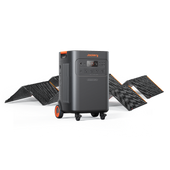




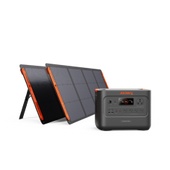







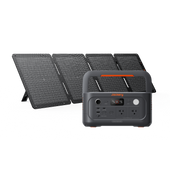





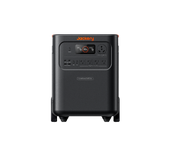
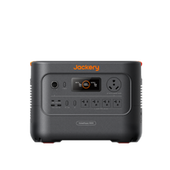




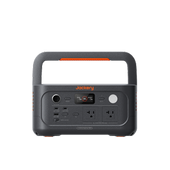





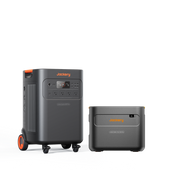
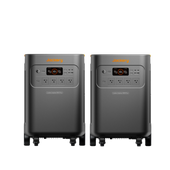
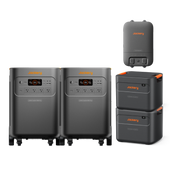





![[Add - on] Jackery Manual Transfer Switch for Explorer 5000 Plus - Jackery](http://www.jackery.com/cdn/shop/files/add-on-jackery-manual-transfer-switch-for-explorer-5000-plus-9017324.png?v=1754016782&width=170)

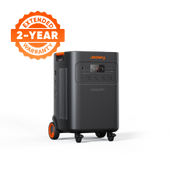

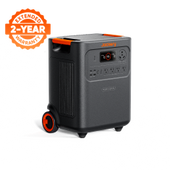






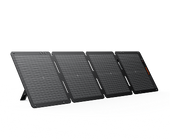



















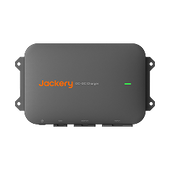






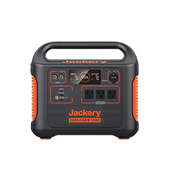





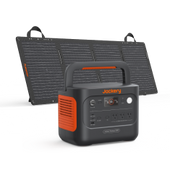
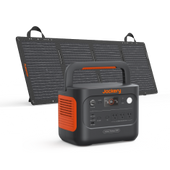








































![What Is The Average Electric Bill in Tennessee [2024 Updated]](http://www.jackery.com/cdn/shop/articles/what-is-the-average-electric-bill-in-tennessee-2024-updated-7182064.jpg?v=1754018356)







Leave a comment